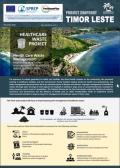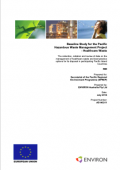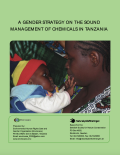This scoping study looks at the gender dimensions of all three Basel, Rotterdam and Stockholm (BRS) conventions as well as the Minamata Conventions in Kyrgyzstan. It explores the gender equality measures in the area of chemicals and waste, outlining key chemicals of concern. It also provides reference to good practices and initiatives for the elimination of these chemicals and offers a number of recommendations for policymakers to integrate the gender dimension.
Among the findings, the study identifies good practices in the management of medical waste. While 80% of those employed in healthcare are women, approximately 400 healthcare workers in the city of Bishkek were trained in cleaning, storing and transporting mercury-containing waste. They were also provided with the equipment that makes it impossible to mix ordinary and hazardous medical waste. The adoption of instructions for the management of medical waste by the Kyrgyz government facilitated the efforts of this medical waste management project, which showed clear improvement in reducing pollution and health risks for medical staff responsible for managing the waste.
The target audience are the stakeholders from governmental institutions, agencies, science, and representatives of environmental and women organizations. This material is also helpful for those involved in the National Implementation Plan (NIP) review and update, in particular the task teams, gender consultants, gender focal points, and practitioners.
Within the framework of the “Global Development, Review and Update of NIPs under the Stockholm Convention on POPs” project, the Green Growth Knowledge Partnership (GGKP) is executing Component 4, which focuses on the dissemination of information, management of knowledge and liaising with the Stockholm Convention Secretariat in providing information and tools to be integrated with existing materials and to make them easily accessible and understandable by all parties to the convention.



